People’s homes are their safe space and sanctuary, so when they open their homes to guests, knowing how to be respectful in someone else’s space can feel a little daunting. Here are nine things you should never touch, or at least not without permission, first.
1. Doorknobs
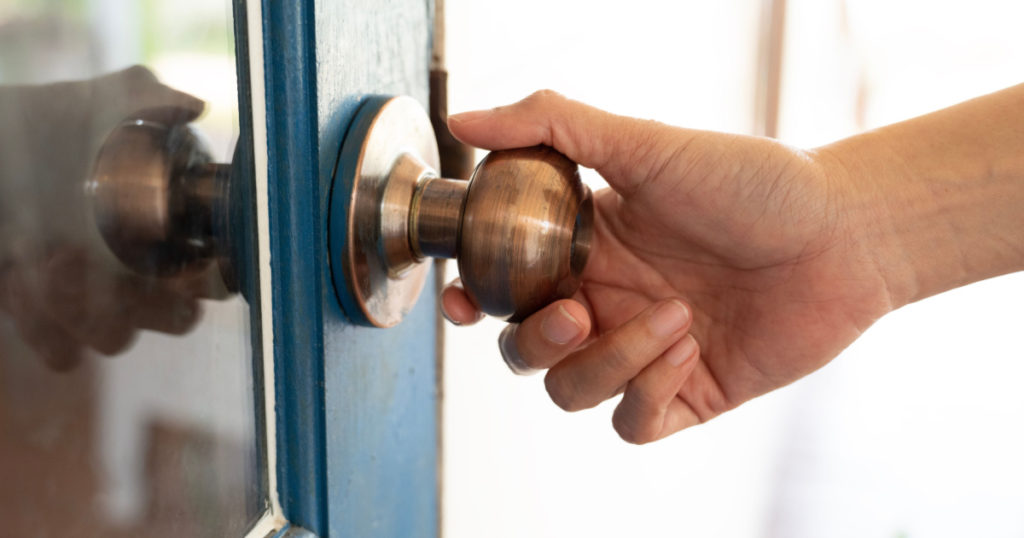
It’s unrealistic to expect someone to never touch a doorknob in someone else’s home. After all, you may need to use the restroom. Moreover, there’s no way to get inside without opening a door. However, proper etiquette calls for getting the okay before entering, which means not opening the front door without permission from the person you’re visiting. This also includes interior doors that may be closed, like bedrooms or spare rooms. Additionally, touching surfaces can spread germs, so it’s a good idea to wash and/or sanitize hands before entering a home, particularly if someone living there has a compromised immune system.
2. Bedrooms
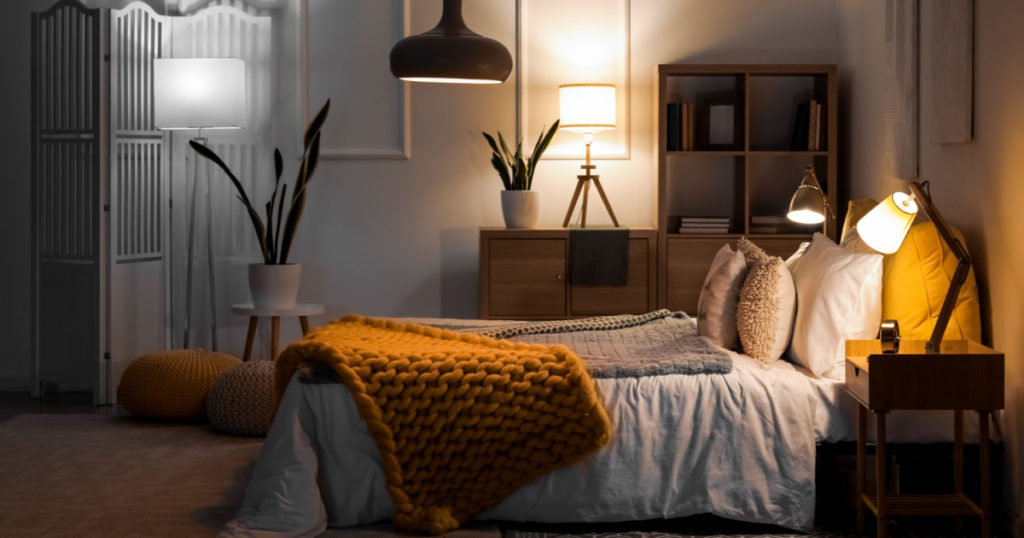
As stated above closed doors are off limits without consent, on the other hand, one’s bedroom is their most private space. As a result, even with permission to “make yourself at home,” going into someone’s bedroom is typically not the most respectful approach to visiting a loved one. In contrast, visiting someone who is bed-bound may require stepping into their personal space. In these cases, properly washing your hands before entering is highly recommended.
3. The Wi-Fi
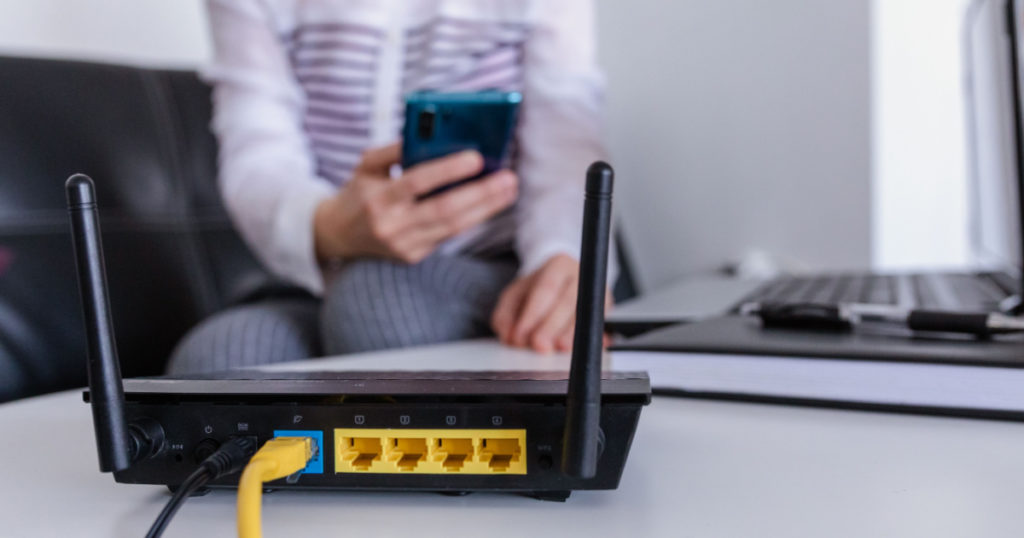
In most cases, when a guest is in someone’s home, you’re there to spend time with them, so it’s considered impolite to ask for the Wi-Fi password if you’re only stopping in for a visit or to share a meal. In contrast, asking for the Wi-Fi password is completely acceptable if you’re a long-term guest, staying for an extended period.
Read More: How Often Should You Wash Your Sheets?
4. Refrigerators

Unless prompted to “help yourself to a beverage or snack“, it’s not ideal for guests to enter a home and begin snooping around the kitchen including the refrigerator and cabinets. Furthermore, long-term guests will likely make a better impression by offering to pitch in for food. Alternatively, offering to help clean up after a meal has been provided is another sure way to ensure you’re using proper etiquette.
5. Don’t touch the Floor

While it goes without saying that avoiding the floor when entering a home is impossible, shoes carry all kinds of germs from outside. Oils from cars on the street, spilled sticky beverages, gas that’s dripped from the nozzle, mud, and so on. As a result, a good example of proper etiquette is to remove shoes, or at least offer to do so, prior to entering the home. On the other hand, some people wear shoes in their homes and won’t mind you doing the same. Before entering the home, it’s always a good idea to ask about their preferences.
Read More: 13 Secrets to Always Having a Clean House
6. Or Anything with Your Feet
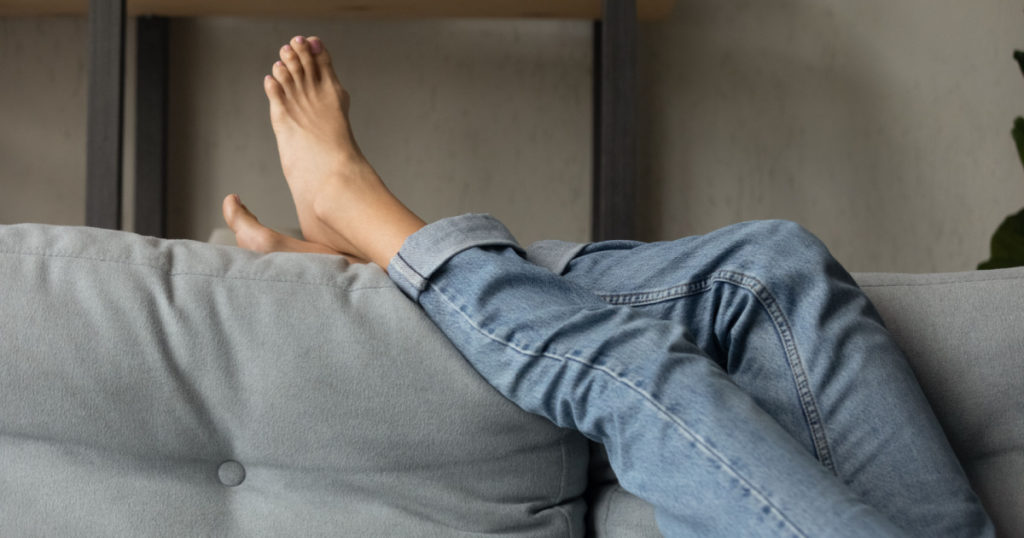
Even though shoes have been removed at the door, it’s still not ideal to put your feet on the furniture, unless you’ve been given the okay by an adult living in the house. In many cases, this rule is lax. However, it’s never okay and often considered rude to put your feet up on surfaces like tables or counters.
7. Don’t Touch the Thermostat
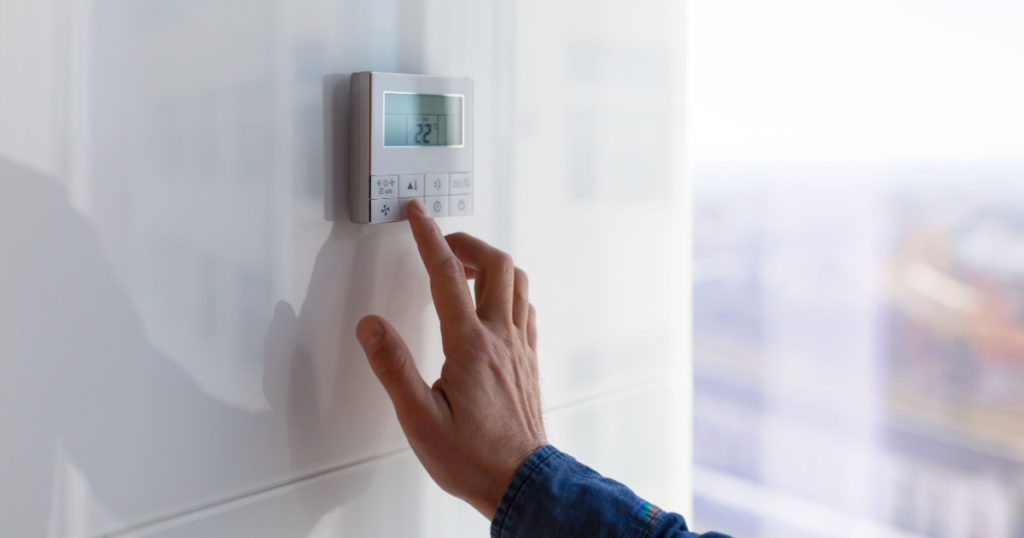
This one is a no-brainer as you’re not the person paying the bills and, therefore, aren’t entitled to adjust the temperature as you see fit. This also applies to opening windows on your own accord. Alternatively, in most cases, the people living in the house will happily make adjustments to fit the comfort of their guests. This rule may sometimes apply to other electrical devices such as televisions, computers, or phones.
8. Mail

Putting aside the fact that it’s actually against the law to go through someone’s mail, it’s also considered rude and can be quite invasive.
9. All Closed Off Spaces
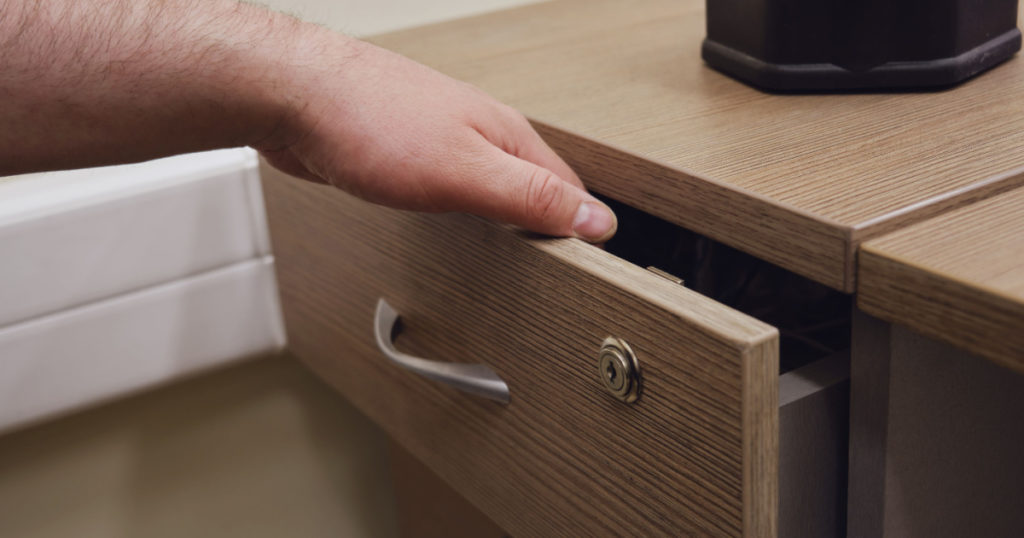
As mentioned above, going behind closed doors is the opposite of proper etiquette. However, that rule applies to more than just doors. It applies to all closed spaces including medicine cabinets, desk drawers, closets, or laundry rooms.
Read More: The Debate On Reusable Toilet Paper
Most people aim to treat others with the same level of respect they want in return

As a result, knowing the proper way to be a guest in someone else’s home can be challenging. Furthermore, it’s important to remember that different cultures and states have their own beliefs about what is considered impolite. Fortunately, most of the time, people are well acquainted with each other in these social settings, which can often help remove some of the pressure. For situations in which that might not be the case, there are loads of online resources, from Reader’s Digest to Indeed, that will offer helpful advice to help make sure you always make a good impression, no matter the circumstances.



